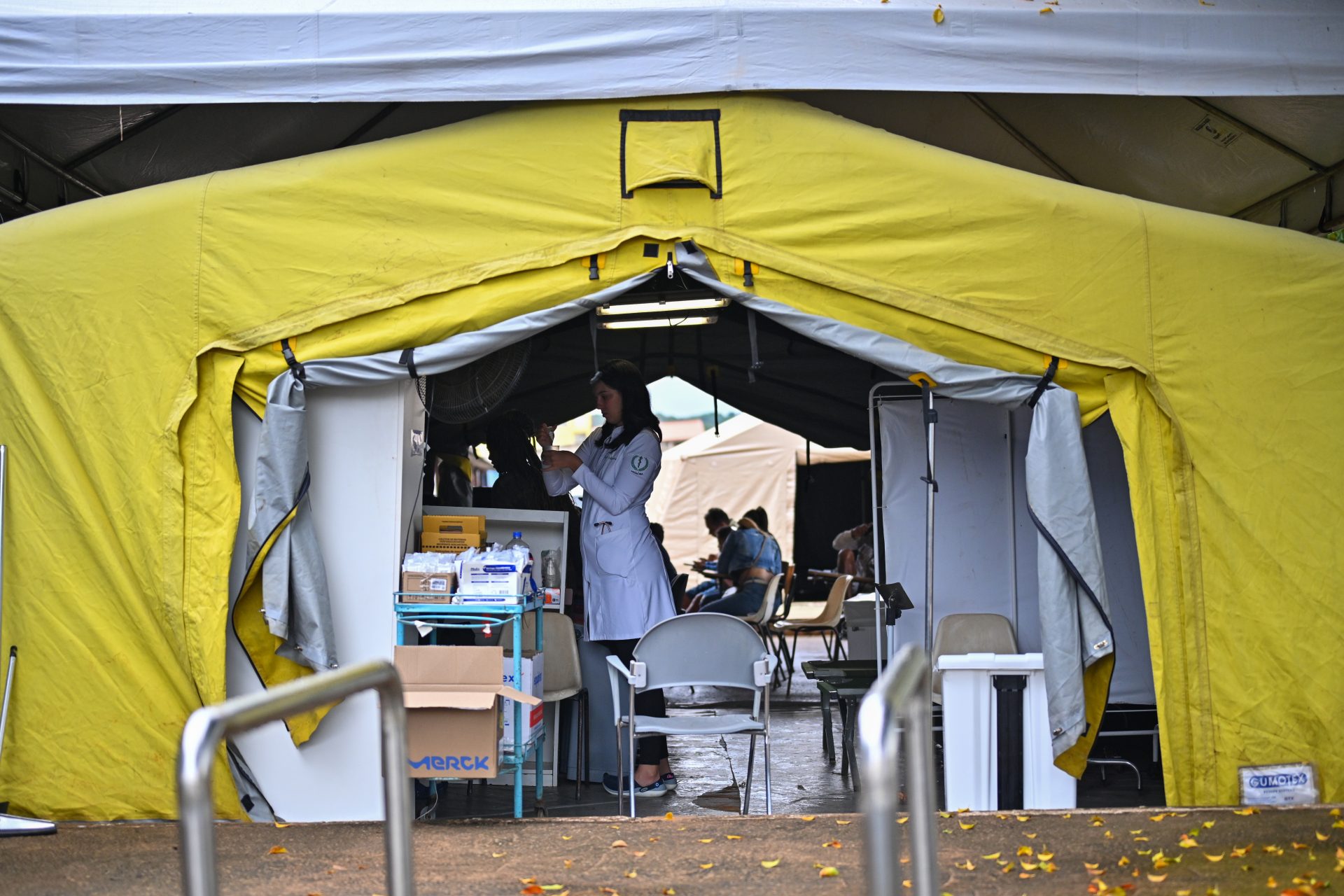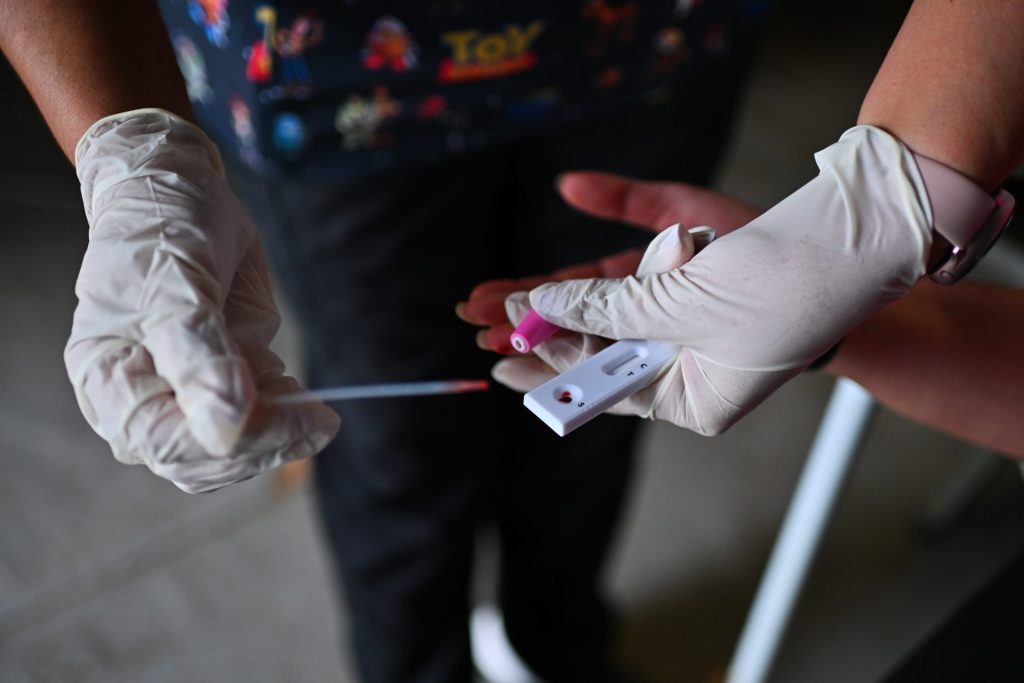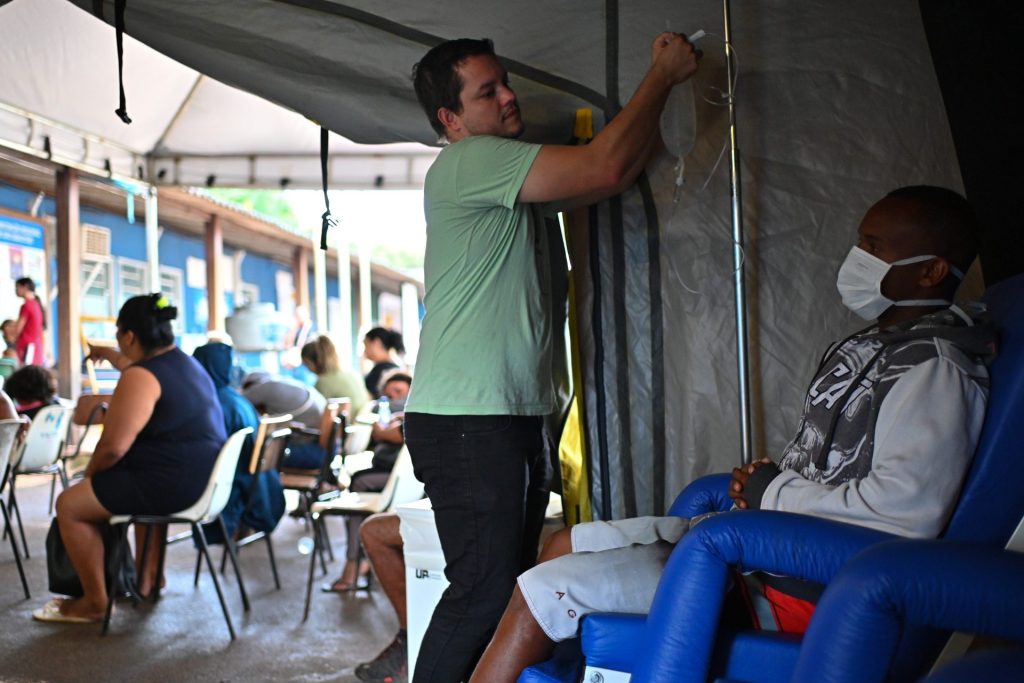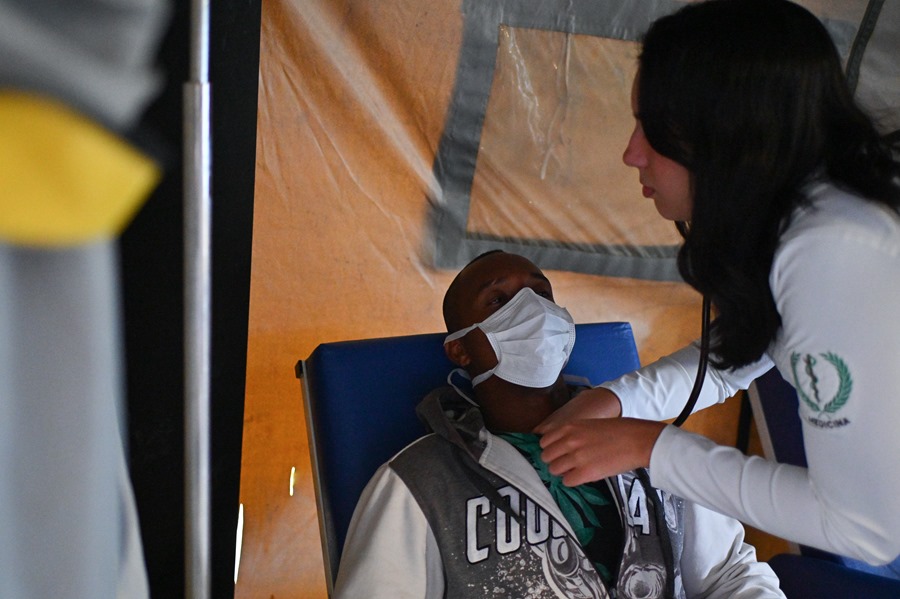Brazil fights dengue: more than 700,000 cases reported in two months

Alex Mirhan and Carlos Meneses |
Brasilia (EFE). — In the midst of its worst peak in years, Brazil is fighting dengue fever door-to-door with fumigation and public awareness campaigns aimed at ending the country’s public enemy number one: the Aedes aegypti mosquito.
There have been 715,000 cases and 135 deaths across Brazil this year, according to the Health Ministry’s latest balance sheet, with another 481 deaths that may have been linked to the disease under investigation.

The number of infections between January and February is almost half the total number of cases recorded last year (1,658,816), when all warnings began to be triggered.
The situation has taken on epidemiological implications in at least seven of Brazil’s 27 states, including two of the three most populous: Minas Gerais and Rio de Janeiro, which officially declared a dengue epidemic on Wednesday.
Brasilia, capital in emergency
The worst data is in the Federal District of Brasilia, where the incidence is almost 3,000 cases per 100,000 inhabitants.
The Brazilian Air Force has set up a field hospital there to ease the burden on the healthcare system.
In parallel, medical surveillance teams are working in the poor and densely populated outskirts of the Brazilian capital.
They operate on two fronts: fumigating with a low-intensity poison and urging the public to stop the spread of mosquitoes in their homes, where, according to official estimates, 75% of infestations occur.

How? Removing all traces of debris and eliminating areas of water accumulation that facilitate the proliferation of Aedes aegypti, the vector of the disease.
In Seilandia, one of Brasilia’s most densely populated areas, a “patrol” with three medical agents fumigates every street and every house twice with backpacks bearing a name that appears to be taken from a space movie: UBV Attached Costal Nebulizer.
Before fumigation, they ask neighbors to remove hanging clothing, open all windows and doors, and remove pets from their homes. The process does not take much time. The poison quickly dissipates and they will soon be able to return to their homes.
“We went through twice to eliminate the mosquitoes that circulate and transmit dengue fever to the residents,” João Fernandez, environmental health agent in Brasília, explains to EFE.
Dengue is pushing hospitals to the limit
On this street in Seylandia, it is not difficult to find people who have just beaten dengue fever or are in the process of doing so.
“My niece had it, she had it twice, and now again, my son and grandson also have symptoms,” Edna Silva Couto, a 67-year-old housewife, tells EFE.
Matheus Fernandez is 31 years old and works as a driver for a transport company. Since Sunday he has had dengue fever: high fever, severe pain all over his body, in his head… He went to the clinic, they did a test, and it turned out to be positive.
“Now you need to rest, drink a lot of fluids, whey, drink enough…,” he notes. He assures that he knows at least a dozen people on his street who have gone through the same thing.

Although the very fact of being hospitalized is a rarity in these parts. Many of the infected neighbors chose to stay home due to chronic oversaturation of the public network.
“You go there and it’s so much… It’s very full, attention is not a priority and everything is done very quickly,” complains Joelson dos Santos Nunez, 62, a children’s school director.
But they all agree on one thing: the population is now more aware than before, following an intense campaign in the Brazilian media on how to fight dengue.
“Two rounds of fumigation are useless if people do not cooperate. They must also take care and eliminate possible sources inside the house,” Fernandez demands.
Brazil has also gradually begun dengue vaccinations in the hardest-hit regions using a formula from Japanese lab Takeda, although its use is not expected to have an immediate health impact due to low availability of doses.